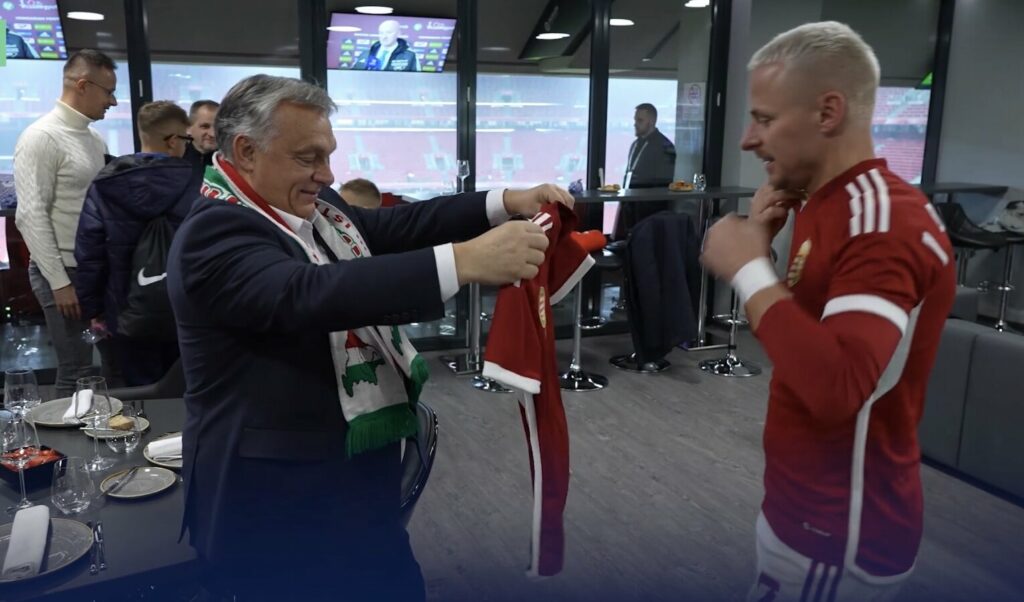Hungarian Prime Minister Viktor Orban has provoked outrage across much of Central and Eastern Europe after a video and several pictures were posted of him on social media wearing a scarf adorned with a map of 'Greater Hungary', which includes parts of present-day Austria, Croatia, Romania, Serbia, Slovakia, and Ukraine.
"Viktor Orban came to a football match with a scarf, which depicts Hungary with part of Ukrainian territory," wrote Oleg Nikolenko, a Ukrainian Foreign Ministry spokesman, on Facebook. "The promotion of revisionist ideas in Hungary does not improve Ukrainian-Hungarian relations and does not comply with the principles of European policy."
Nikolenko stated that the Hungarian Ambassador to Ukraine will be summoned to the Ukrainian Foreign Ministry. He said that Ukraine is "waiting for an official apology from the Hungarian side".
In an official statement, the Romanian Foreign Ministry also noted its "firm disapproval of the gesture", adding that "any manifestation of a revisionist type, regardless of the form it takes, is unacceptable".
Related News
- Orban labels EU sanctions on Russia 'a step towards war'
- Final report on Hungary: This is how elections in an illiberal EU country look like
Yet a spokesperson for the Austrian Ministry of International Affairs offered a significantly lighter response, telling Politico: "A quick glance at historical maps in the Viennese Ministry of Foreign Affairs has confirmed initial suspicions, according to which Transleithania [the former Kingdom of Hungary] ceased to exist around 100 years ago. We will inform our Hungarian neighbours of this development at the earliest opportunity."
Reopening old wounds
"Football is not politics," Orban later replied on Facebook. "Let's not see what is not there. The Hungarian national team is the team of all Hungarians, wherever they live!"
Under the Treaty of Trianon, signed after its defeat at the end of the First World War, Hungary was forced to give up more than two-thirds of its historical territory, leaving millions of ethnic Hungarians beyond the country's borders, where many remain to this day: approximately 1.2 million ethnic Hungarians live in Romania, while 150,000 are based in Western Ukraine. The terms of the Treaty have been a continual source of resentment within Hungary ever since.
Orban has become something of a pariah among EU leaders in recent years and has been widely condemned for his repression of the media and civil society groups, as well as for his relatively warm relations with Russia.

